
Mifflin Wistar Gibbs (1823-1915)
After waging a long battle against California’s anti-black laws, Mifflin Wistar Gibbs, a prominent civil rights activist and entrepreneur in San Francisco, helped lead a migration of several hundred African Americans to Victoria, British Columbia.
A free black man born in Philadelphia, Gibbs cut his abolitionist teeth traveling with Frederick Douglass on an anti-slavery speaking tour. When it was over, Gibbs hopped a steam ship and headed west to seek his fortune during the Gold Rush. A self-taught carpenter who arrived in the city with a mere 60 cents, Gibbs got a job working at a shoe store. There, he met Peter Lester, another free black man. The two started up their own business and went on to make a fortune selling luxury shoes. Gibbs and Lester would emerge as leading activists in the local black community. Gibbs was a frequent critic of the discriminatory treatment of blacks in the so-called “free” state. He co-founded Mirror of the Times, the first black newspaper on the Pacific Coast, and used it as a pulpit to wage a campaign against restrictive “black laws.” Under its slogan, “Truth Crushed To The Earth Will Rise Again,” the Mirror denounced testimony exclusion laws that prevented blacks from testifying against whites in civil or criminal cases. It demanded an end to the poll tax on black businesses, citing its unfairness when blacks were banned from voting. A passionate anti-slavery activist, Gibbs helped raise funds for fugitive slave Archy Lee’s legal defense. In 1858, a bill was introduced in the legislature to ban black people from moving to the state. And to require free black residents and “mulattoes” to register with the county to prove their residency. It failed to pass. It did however leave a bitter taste for blacks. Gibbs and Lester joined hundreds of families who turned their backs on California racism and headed for British Columbia in the hopes of finding a more welcoming reception. Gibbs made a fortune in dry goods, coal, and real estate. After the Civil War, Gibbs, who had always refused to let racism limit his prospects, moved back to the United States to Arkansas, where he became the first black elected municipal judge in the country.
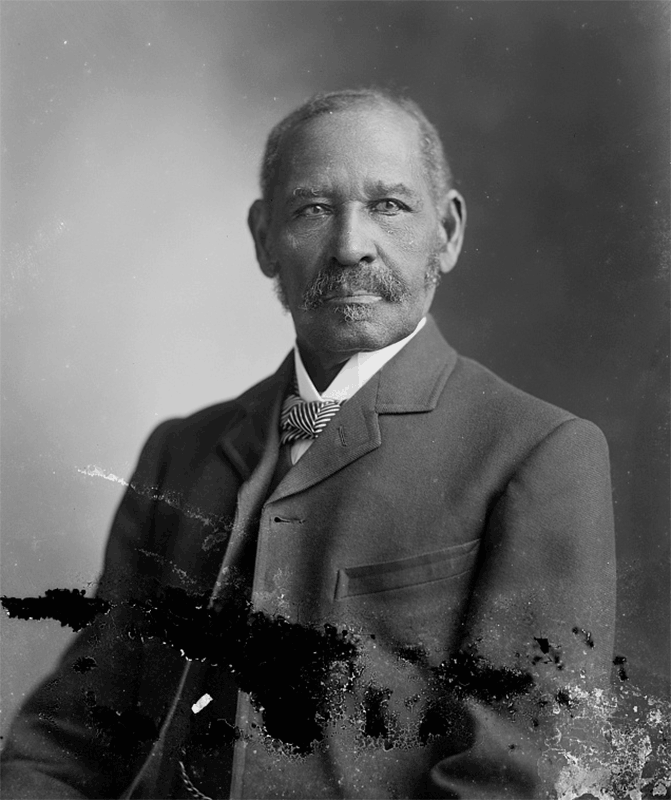
Photo of Gibbs in middle age // Credit: Library of Congress, Prints & Photographs Division, C. M. Bell Studio Collection, LC-DIG-bellcm-12837
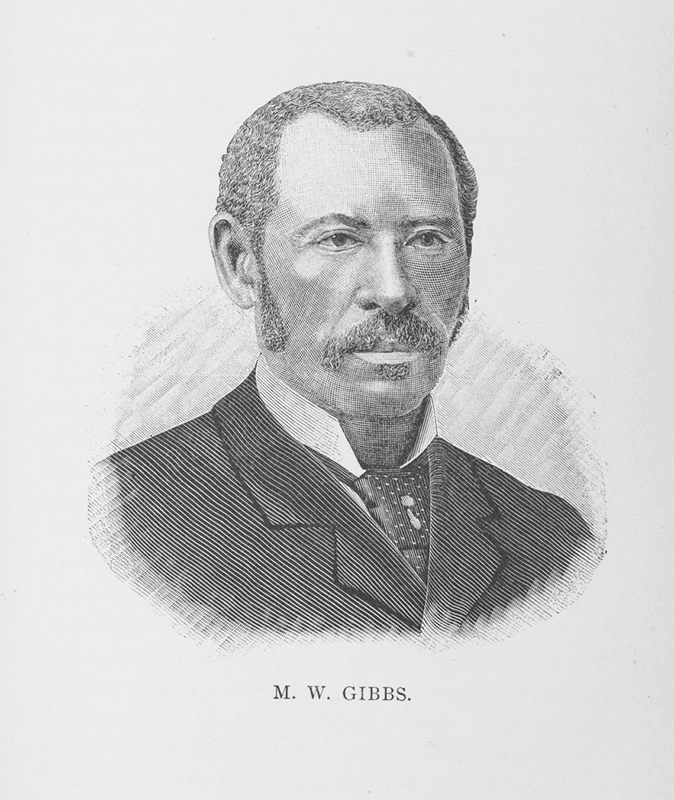
Engraving of Gibbs as a young man // Credit: Schomburg Center for Research in Black Culture, Jean Blackwell Hutson Research and Reference Division, The New York Public Library.
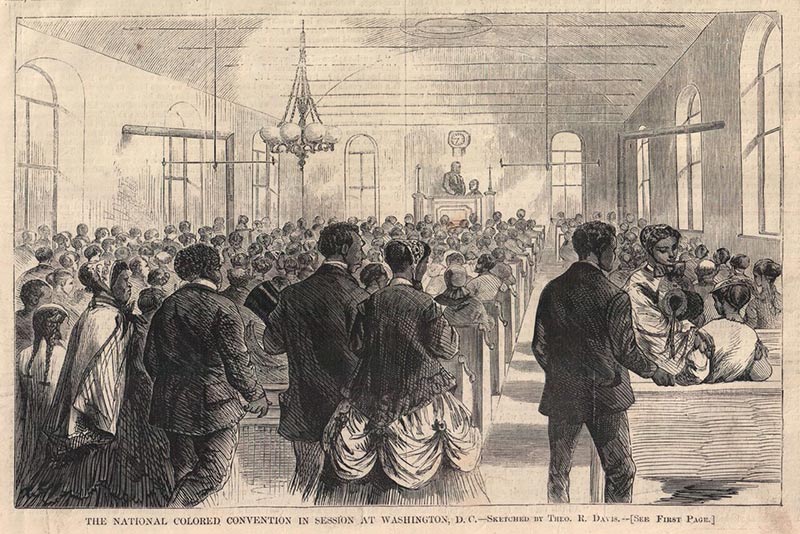
The Colored Conventions were a monumental organizing effort by black people across the country to fight for full citizenship rights. The conventions laid a foundation that the civil rights movement would build on.
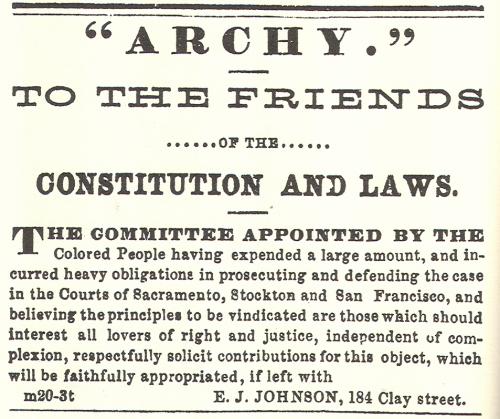
In one of the most celebrated fugitive slave cases in California, Archy Lee, a young black man who had been brought to the state from Mississippi, escaped and waged a successful legal battle for his freedom that went all the way to the federal courts.
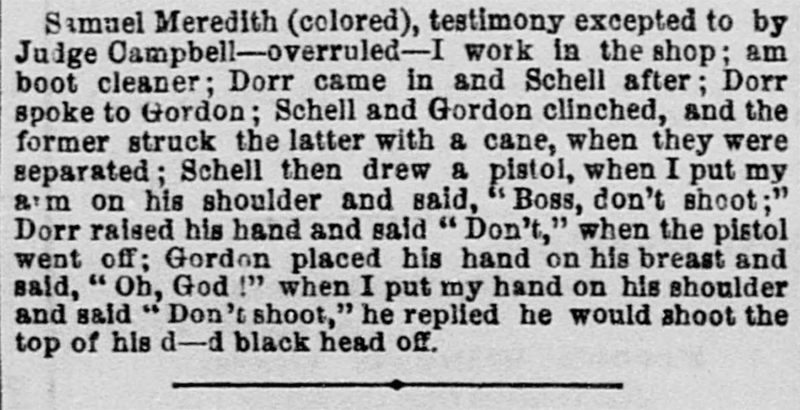
George Gordon, a black barber was shot to death by a white man in full view of witnesses in his San Francisco shop. A judge refused to allow the testimony of blacks because of their race. The killer got a lighter sentence as a result.
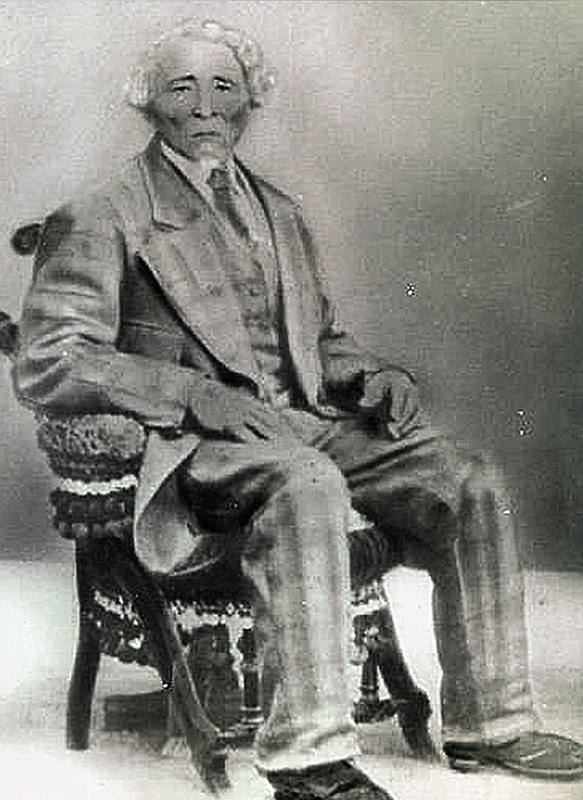
After purchasing his freedom, Edmond Wysinger filed a historic lawsuit that made it illegal for California public schools to ban black students.
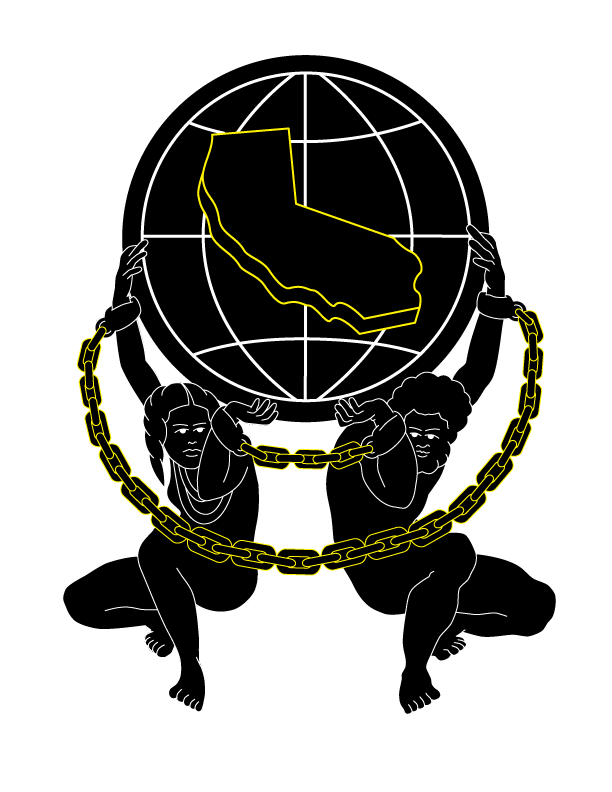
The mission of Gold Chains is to uncover the hidden history of slavery in California by lifting up the voices of courageous African American and Native American individuals who challenged their brutal treatment and demanded their civil rights, inspiring us with their ingenuity, resilience, and tenacity. We aim to expose the role of the courts, laws, and the tacit acceptance of white supremacy in sanctioning race-based violence and discrimination that continues into the present day. Through an unflinching examination of our collective past, we invite California to become truly aware and authentically enlightened.